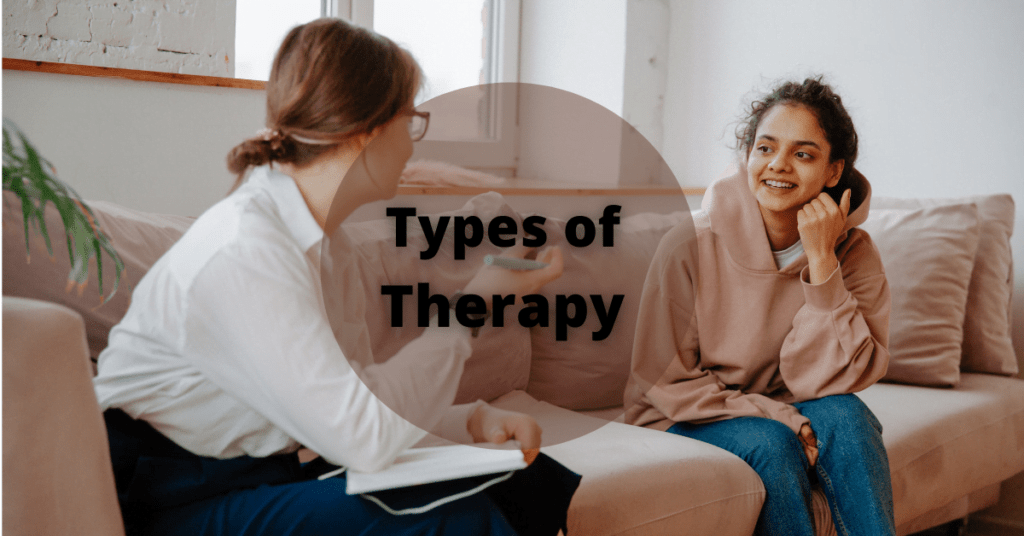Contents
What Is Therapy?
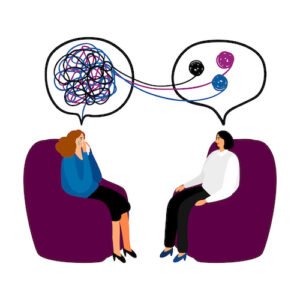 For anyone who has felt overwhelmed by their mental health, therapy can be a life-saving solution. Therapy is an opportunity to talk through your feelings with someone you trust. You can also develop new coping strategies in the process. There are many different Types of therapy out there. Therapy helps someone process and manage their thoughts and feelings. While different types of therapy work differently for each person, they all focus on developing healthy coping strategies. These are while processing difficult emotions in a safe environment with an experienced professional.
For anyone who has felt overwhelmed by their mental health, therapy can be a life-saving solution. Therapy is an opportunity to talk through your feelings with someone you trust. You can also develop new coping strategies in the process. There are many different Types of therapy out there. Therapy helps someone process and manage their thoughts and feelings. While different types of therapy work differently for each person, they all focus on developing healthy coping strategies. These are while processing difficult emotions in a safe environment with an experienced professional.
Every type of therapy is to help individuals who struggle with specific mental health problems. These are such as addictions or depression. You can use therapy to simply deal with the stressors that come along during life’s many challenges. These life challenges are like relationships, career changes, family matters, and more.
Types of Therapy
There are many types of therapy, and the type you receive depends on your mental health needs. Furthermore, these are the types of therapies :
Individual Therapy
 This type of therapy can address the problems an individual has. This helps people work on their own personal issues. It is rather than worrying about everyone else at times. It focuses on building coping skills and understanding emotions thoroughly. This is so that an individual doesn’t feel like they’re drowning in a stormy sea trying to keep afloat no matter who has tried helping or where support might come from either due to fear or confusion etc.
This type of therapy can address the problems an individual has. This helps people work on their own personal issues. It is rather than worrying about everyone else at times. It focuses on building coping skills and understanding emotions thoroughly. This is so that an individual doesn’t feel like they’re drowning in a stormy sea trying to keep afloat no matter who has tried helping or where support might come from either due to fear or confusion etc.
Group Therapy
 This type of therapy is for those who want to expand their social circle. This is also for those who want to connect more closely with others dealing with similar issues. These issues are such as addiction recovery, mental health problems, relationship difficulties, etc. Groups can vary from large groups that meet daily all the way down to small weekly meetings over coffee.
This type of therapy is for those who want to expand their social circle. This is also for those who want to connect more closely with others dealing with similar issues. These issues are such as addiction recovery, mental health problems, relationship difficulties, etc. Groups can vary from large groups that meet daily all the way down to small weekly meetings over coffee.
Couples Therapy
 This type of therapy helps couples. This is to learn how to communicate better and work through any relationship problems they may be having. It can also be a great option for those who feel like their significant other isn’t there for them emotionally or vice versa. This is also for friends in close relationships that want to improve the dynamic between one another. Marriages are often referred by pastors or clergy members when counseling doesn’t seem to be helping with issues. These issues are such as intimacy, communication, infidelity, etc. Psychiatrists sometimes will refer people struggling with depression or anxiety if traditional antidepressants aren’t working. This can be due to certain emotional factors that need deeper exploration over time. This is especially after an individual has attempted suicide several times. These are before receiving medication assistance.
This type of therapy helps couples. This is to learn how to communicate better and work through any relationship problems they may be having. It can also be a great option for those who feel like their significant other isn’t there for them emotionally or vice versa. This is also for friends in close relationships that want to improve the dynamic between one another. Marriages are often referred by pastors or clergy members when counseling doesn’t seem to be helping with issues. These issues are such as intimacy, communication, infidelity, etc. Psychiatrists sometimes will refer people struggling with depression or anxiety if traditional antidepressants aren’t working. This can be due to certain emotional factors that need deeper exploration over time. This is especially after an individual has attempted suicide several times. These are before receiving medication assistance.
Behavioral Therapy
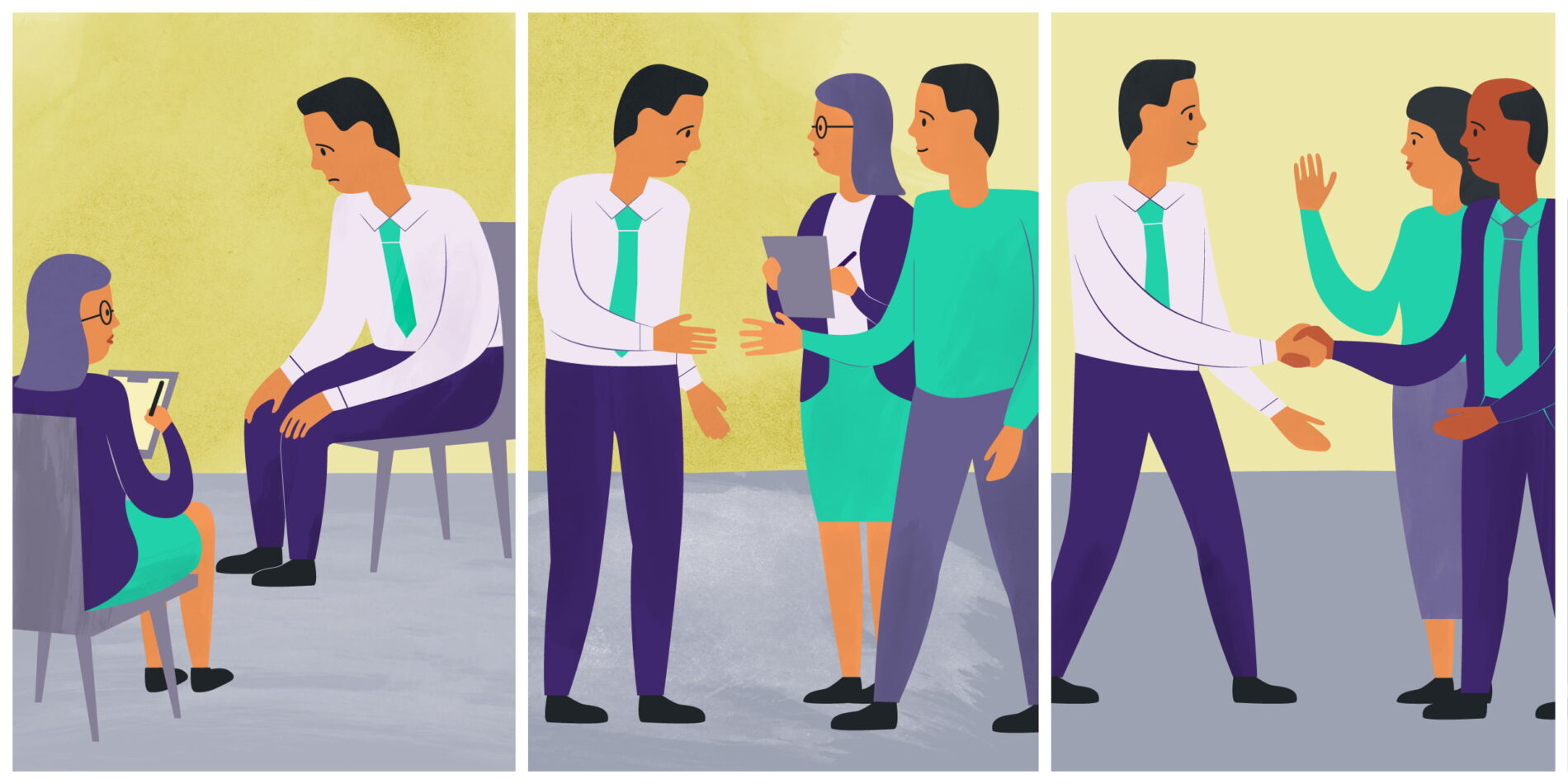
This type of therapy is used to help individuals understand why they behave in certain ways. This can be sometimes difficult as well. This is because there are often multiple reasons behind someone’s actions instead of just one simple cause/effect relationship between two things happening consistently over time. It focuses on how thoughts, feelings, physical sensations, etc. can lead to certain actions. This also depends on how one might change things around. This is by altering their thought patterns or physical responses. This is instead of simply focusing on the behavior itself. It is because the mind is extremely powerful in a way that it has an effect. It is no matter what kind of stimuli might enter into sensory areas.
Dialectical Behavior Therapy (DBT)
This type of therapy was originally developed for individuals who have a borderline personality disorder but has been used more broadly since its release including those struggling with suicidal ideations, self-injury tendencies, addiction problems among other mental health conditions. DBT focuses on helping an individual identify triggers ahead of time and learn how to better cope with difficult situations. Furthermore, it looks at how to balance and prioritize different areas of life such as one’s physical health, mental well-being, relationships, etc.
Cognitive Behavioral Therapy (CBT)
Cognitive Behavioral Therapy can help those who struggle with depression or anxiety. It can also be beneficial when an individual has a substance abuse problem. CBT helps people learn coping skills that replace the need to self-medicate by drinking alcohol or using other drugs. Generally speaking, this approach focuses on present issues rather than digging up old wounds from the past as psychodynamic therapies do. This works towards finding ways to improve things in daily living now and not wait until a crisis hits before seeking help. The client and therapist work together. This is so the individual can identify unhelpful thoughts and behaviors they engage in. They can also learn how to replace them with healthier ways of coping.
Humanistic Therapy
 This is one of the types of therapy that focuses on building a relationship. This is between therapist and client. It is rather than focusing on specific problems. It’s based on self-exploration through introspection. This leads clients to feel more connected with themselves emotionally. The goal is that once an individual learns about their feelings better, they’ll be able to trust others more easily. This is because there won’t be such a need for defense mechanisms. These mechanisms are like constantly feeling guarded all the time due to underlying negative beliefs etcetera. This approach also looks at interpersonal relationships. This is because everyone is a social creature who constantly requires support from one another. Sometimes they struggle to open up and ask those you care for.
This is one of the types of therapy that focuses on building a relationship. This is between therapist and client. It is rather than focusing on specific problems. It’s based on self-exploration through introspection. This leads clients to feel more connected with themselves emotionally. The goal is that once an individual learns about their feelings better, they’ll be able to trust others more easily. This is because there won’t be such a need for defense mechanisms. These mechanisms are like constantly feeling guarded all the time due to underlying negative beliefs etcetera. This approach also looks at interpersonal relationships. This is because everyone is a social creature who constantly requires support from one another. Sometimes they struggle to open up and ask those you care for.
Positive Psychology
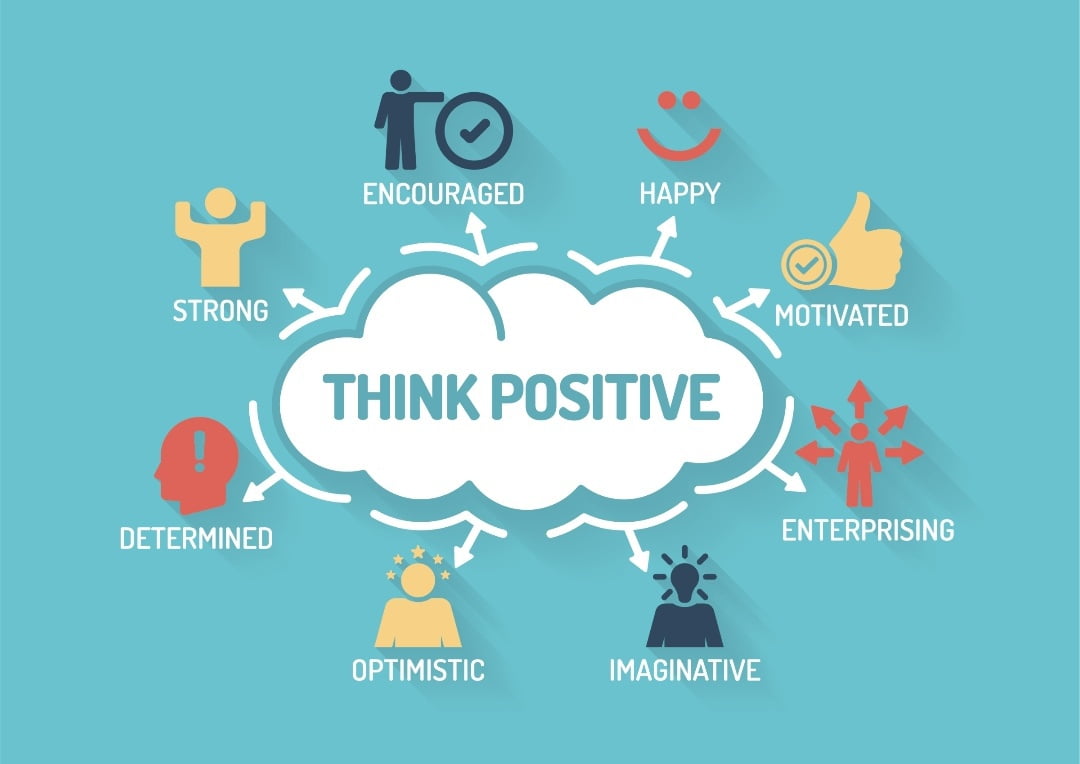 This is one of the types of therapy that focuses on building strengths rather than overcoming weaknesses. It’s used when an individual finds themselves in a rut where they feel like there isn’t any hope for change or improvement due to the severity of their depression, anxiety etcetera. It helps people recognize what makes them happy so that even if things are difficult now, there will be something good waiting ahead once they’ve made changes within themselves first. This approach also looks at how one can move towards being more productive by focusing on meaningful activities instead of giving into avoidance which only leads to further problems down the road since life won’t wait around forever until all wounds have healed before moving forward with the next stage.
This is one of the types of therapy that focuses on building strengths rather than overcoming weaknesses. It’s used when an individual finds themselves in a rut where they feel like there isn’t any hope for change or improvement due to the severity of their depression, anxiety etcetera. It helps people recognize what makes them happy so that even if things are difficult now, there will be something good waiting ahead once they’ve made changes within themselves first. This approach also looks at how one can move towards being more productive by focusing on meaningful activities instead of giving into avoidance which only leads to further problems down the road since life won’t wait around forever until all wounds have healed before moving forward with the next stage.
Family Therapy
 This type of therapy is used when an individual’s mental health issues affect the family dynamic; it helps everyone understand how to work together as a unit so that conflicts can be resolved in healthy ways instead of pushing one another away out of fear, anger etcetera. This approach looks at how much each person contributes to difficulties within the household which might not only involve the individual struggling with their own problems but also other people who are dealing with stressors related to caring for someone else too. It focuses on building communication skills and understanding within the entire group which strengthens bonds between all members involved rather than tearing them apart slowly due to constant tension or misunderstandings among one another.
This type of therapy is used when an individual’s mental health issues affect the family dynamic; it helps everyone understand how to work together as a unit so that conflicts can be resolved in healthy ways instead of pushing one another away out of fear, anger etcetera. This approach looks at how much each person contributes to difficulties within the household which might not only involve the individual struggling with their own problems but also other people who are dealing with stressors related to caring for someone else too. It focuses on building communication skills and understanding within the entire group which strengthens bonds between all members involved rather than tearing them apart slowly due to constant tension or misunderstandings among one another.
Psychodynamic Therapy
 This type of therapy helps to address the unconscious mind. It helps individuals define their problems through the exploration of memories, dreams, etc. It focuses on understanding how past experiences can affect present behavior and choices made by looking at what has happened in life up until this point even if it doesn’t seem like things are related right now since human beings tend to hold onto certain emotional responses/beliefs for a lifetime which might not always be apparent due to lack of communication or bringing them up during conversations with others. Once everything has been processed though, people may feel relief from things that have remained unresolved within themselves long-term without realizing exactly why they’ve struggled so much at times despite there being minimal evidence pointing towards specific incidents causing such dysfunction within an individual’s life.
This type of therapy helps to address the unconscious mind. It helps individuals define their problems through the exploration of memories, dreams, etc. It focuses on understanding how past experiences can affect present behavior and choices made by looking at what has happened in life up until this point even if it doesn’t seem like things are related right now since human beings tend to hold onto certain emotional responses/beliefs for a lifetime which might not always be apparent due to lack of communication or bringing them up during conversations with others. Once everything has been processed though, people may feel relief from things that have remained unresolved within themselves long-term without realizing exactly why they’ve struggled so much at times despite there being minimal evidence pointing towards specific incidents causing such dysfunction within an individual’s life.
Emotion Based Therapy
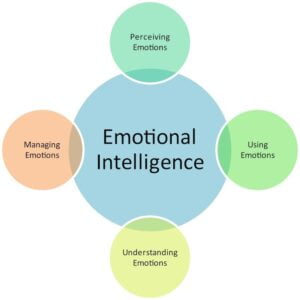 This type of therapy can help individuals to understand their emotions. It helps people recognize what makes them happy. This is so that even if things are difficult now, there will be something good waiting ahead. It is once they’ve made changes within themselves first. This approach also looks at how one can move towards being more productive by focusing on meaningful activities instead of giving into avoidance which only leads to further problems down the road since life won’t wait around forever until all wounds have healed before moving forward with the next stage. It focuses on building coping skills and understanding emotions thoroughly so that an individual doesn’t feel like they’re drowning in a stormy sea trying to keep afloat no matter who has tried helping or where support might come from either due to fear or confusion etc.
This type of therapy can help individuals to understand their emotions. It helps people recognize what makes them happy. This is so that even if things are difficult now, there will be something good waiting ahead. It is once they’ve made changes within themselves first. This approach also looks at how one can move towards being more productive by focusing on meaningful activities instead of giving into avoidance which only leads to further problems down the road since life won’t wait around forever until all wounds have healed before moving forward with the next stage. It focuses on building coping skills and understanding emotions thoroughly so that an individual doesn’t feel like they’re drowning in a stormy sea trying to keep afloat no matter who has tried helping or where support might come from either due to fear or confusion etc.
Benefits of Different Types of Therapy
These are some benefits of different types of therapies:
- Psychotherapy can help people resolve mental health issues and make them feel better about themselves.
- Dialectical behavior therapy (DBT) works well for individuals who are struggling with self-harming behaviors, like cutting or thoughts of suicide. DBT also helps those dealing with chronic suicidal thinking and other mood disorders such as depression.
- Cognitive-behavioral therapy (CBT) is effective in helping patients learn to identify their negative emotions so they can be dealt with effectively through healthy coping mechanisms instead of resorting to substance abuse to avoid the bad feelings associated with difficult life experiences.
- These help individuals resolve mental health issues and make them feel better about themselves.
- DBT works well for individuals who are struggling with self-harming behaviors, like cutting or thoughts of suicide. DBT also helps those dealing with chronic suicidal thinking and other mood disorders such as depression.
- Cognitive-behavioral therapy (CBT) is effective in helping patients identify their negative emotions so they can be dealt with effectively through healthy coping mechanisms instead of resorting to substance abuse to avoid the bad feelings associated with difficult life experiences.
Conclusion
Therapy is an important part of mental health. There are many types available, and you should find the one that best suits your needs.
There are many different types of therapy that can be used in the treatment of mental health conditions, and it is important to find one or more that suit your needs. Even if you don’t have a diagnosis for something like anxiety, depression, OCD, trauma, etc., there may still be some type of therapy out there that will help you feel better.
If you are looking for affordable Online Counseling MantraCare can help: Book a trial therapy session
